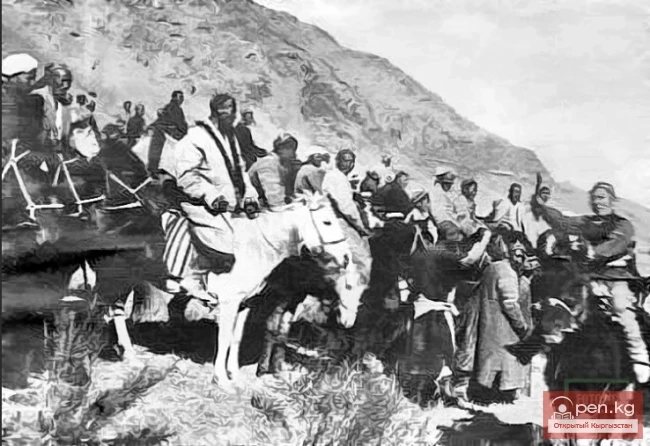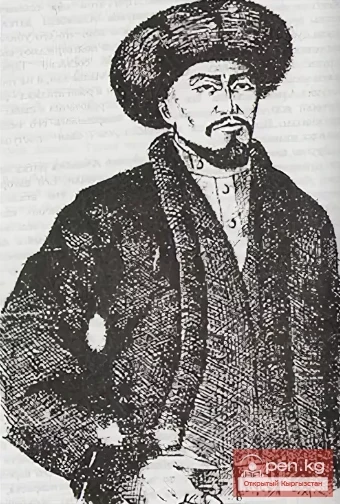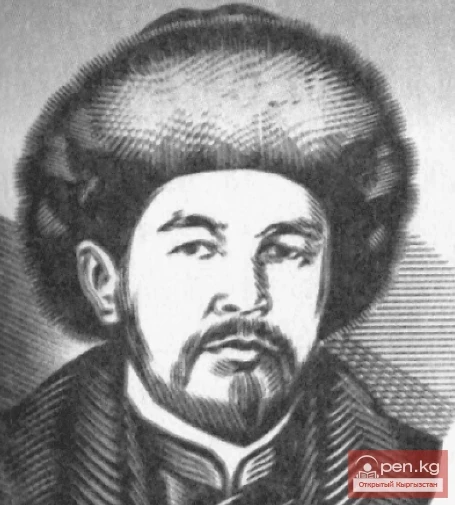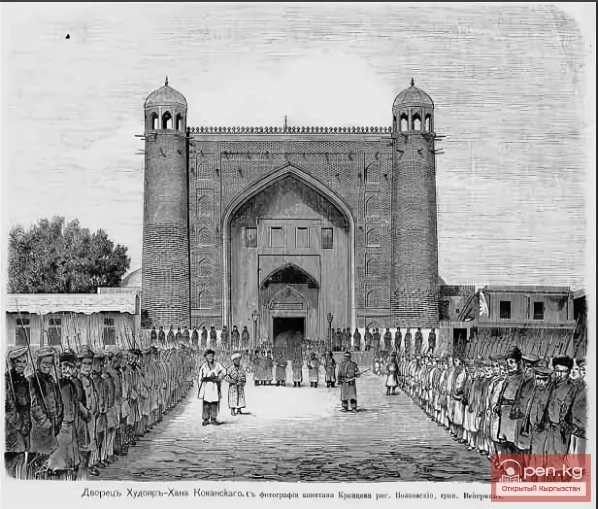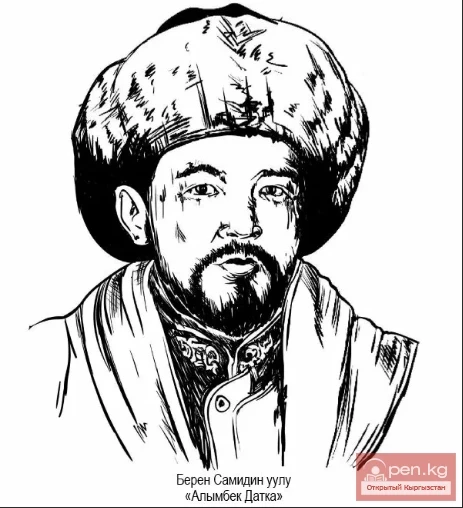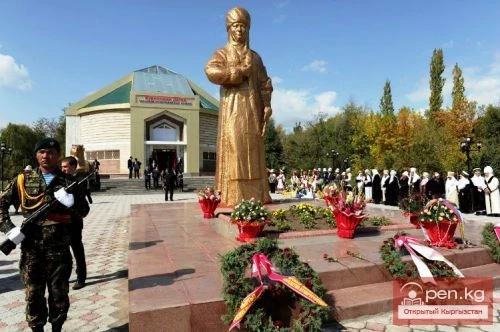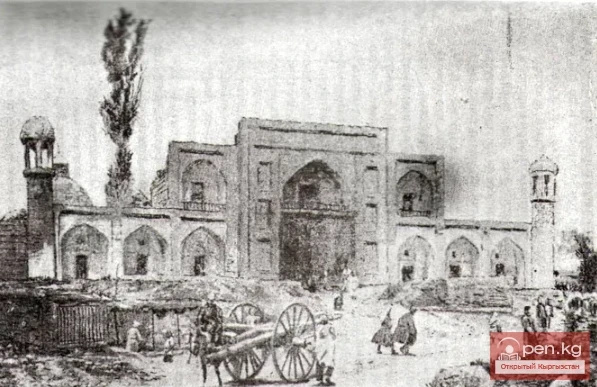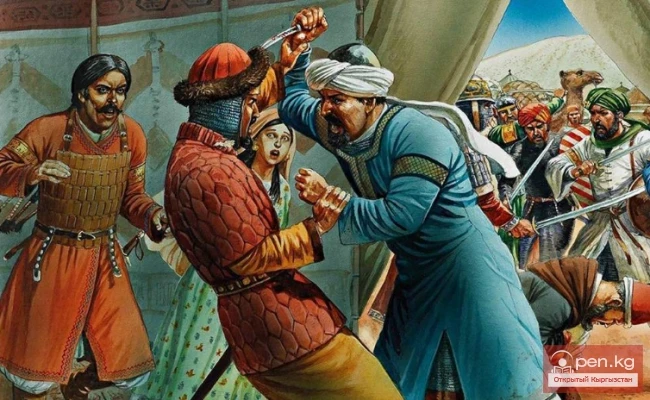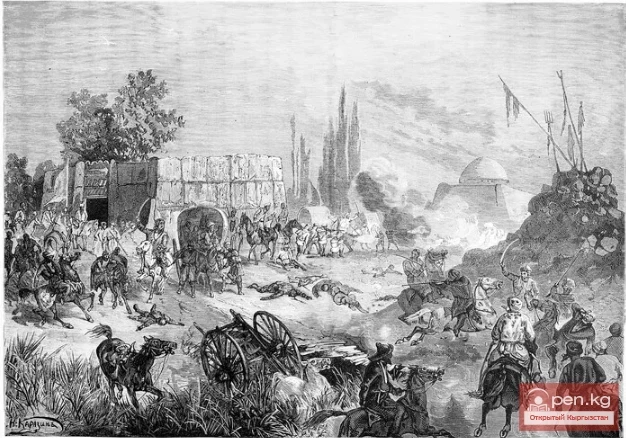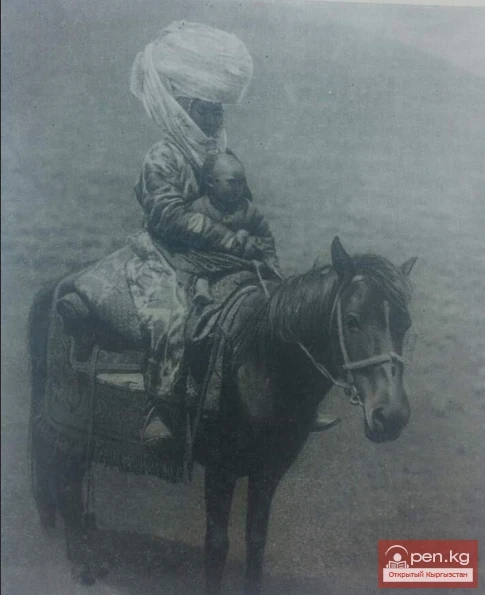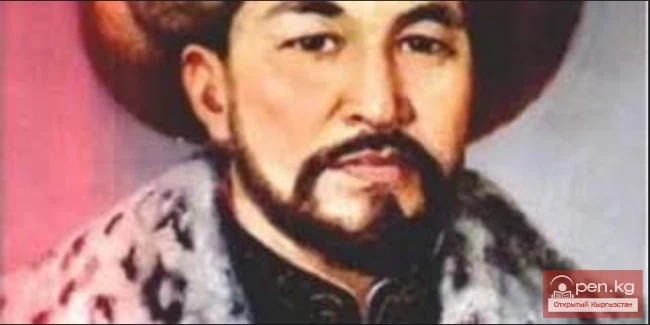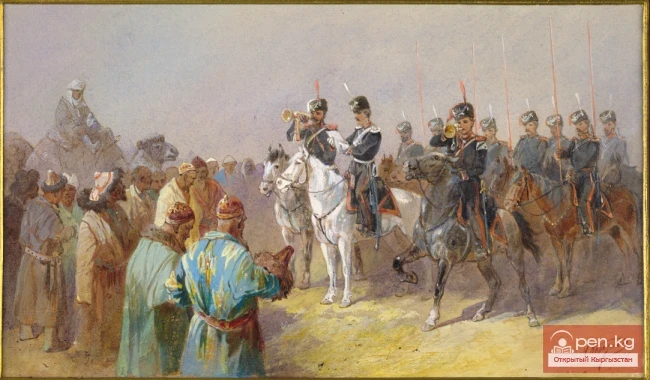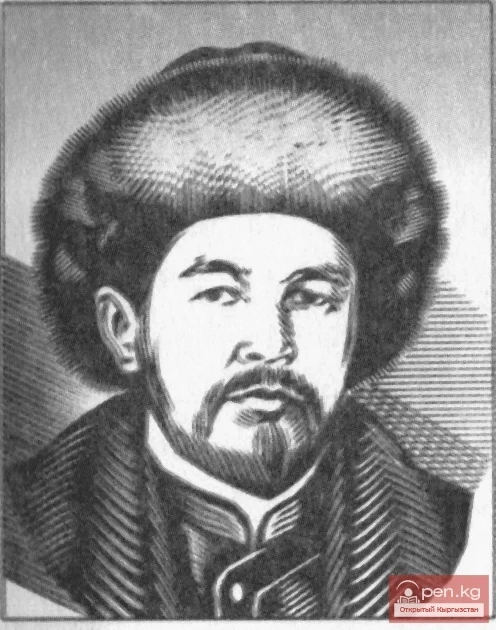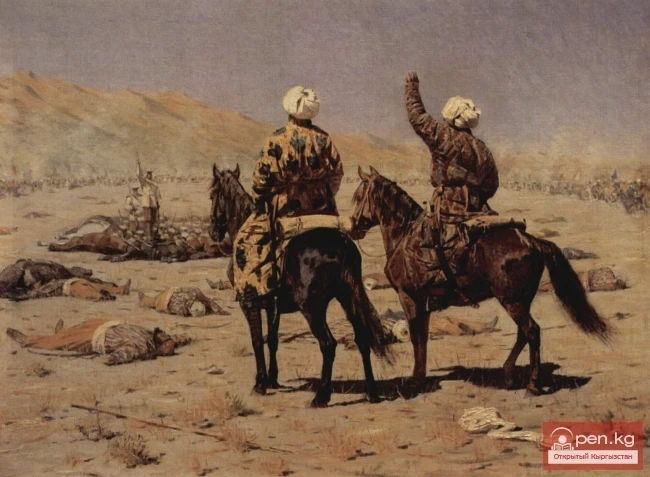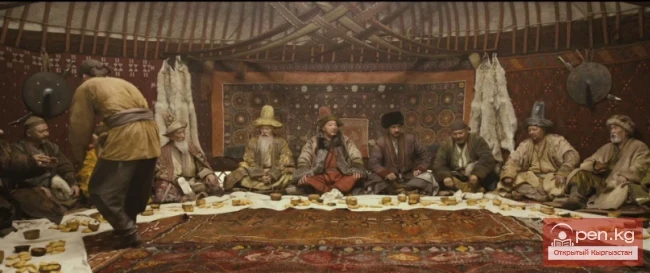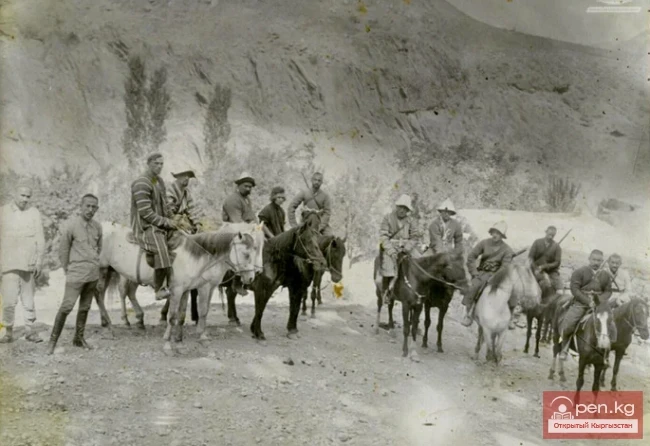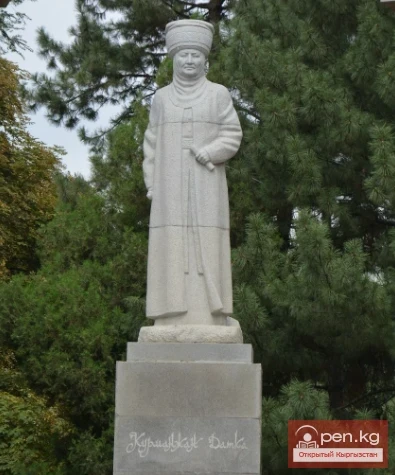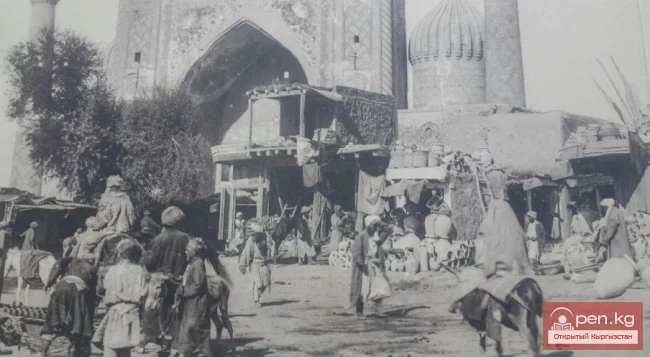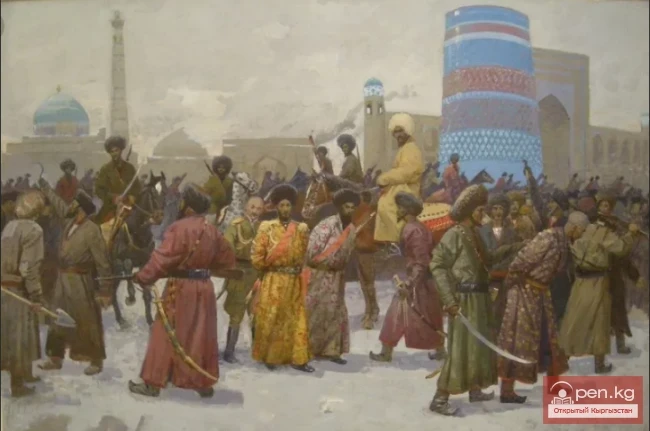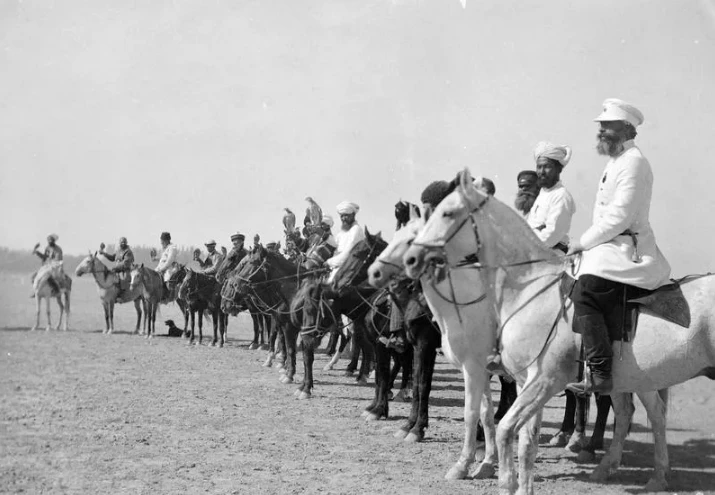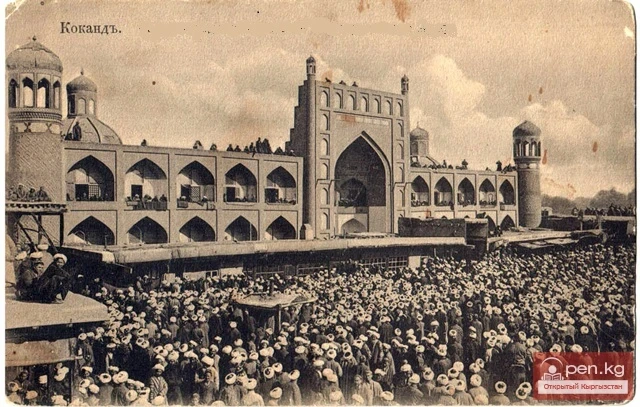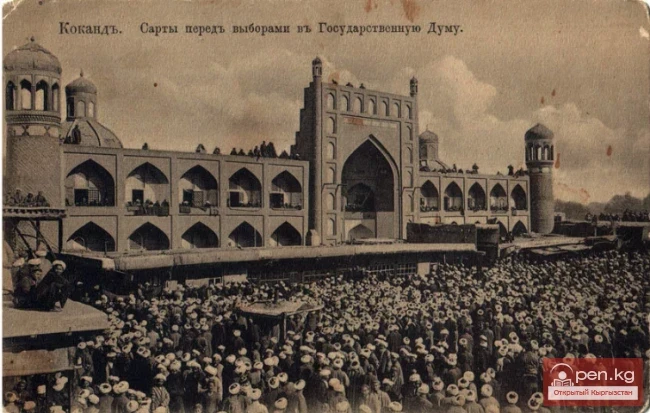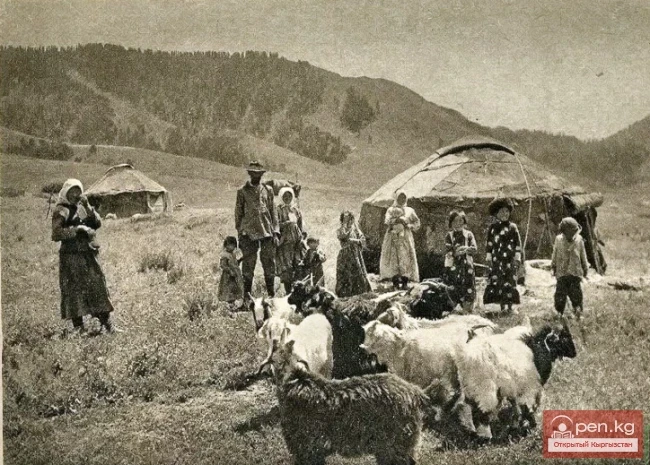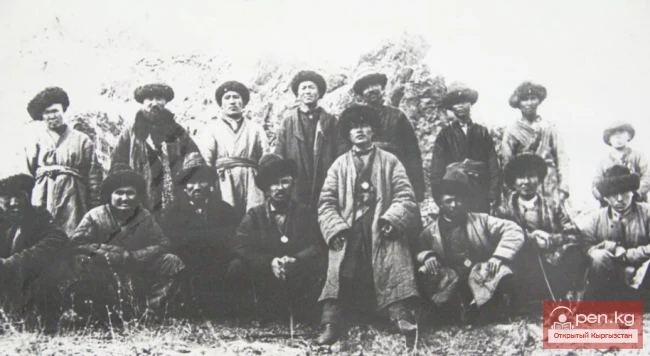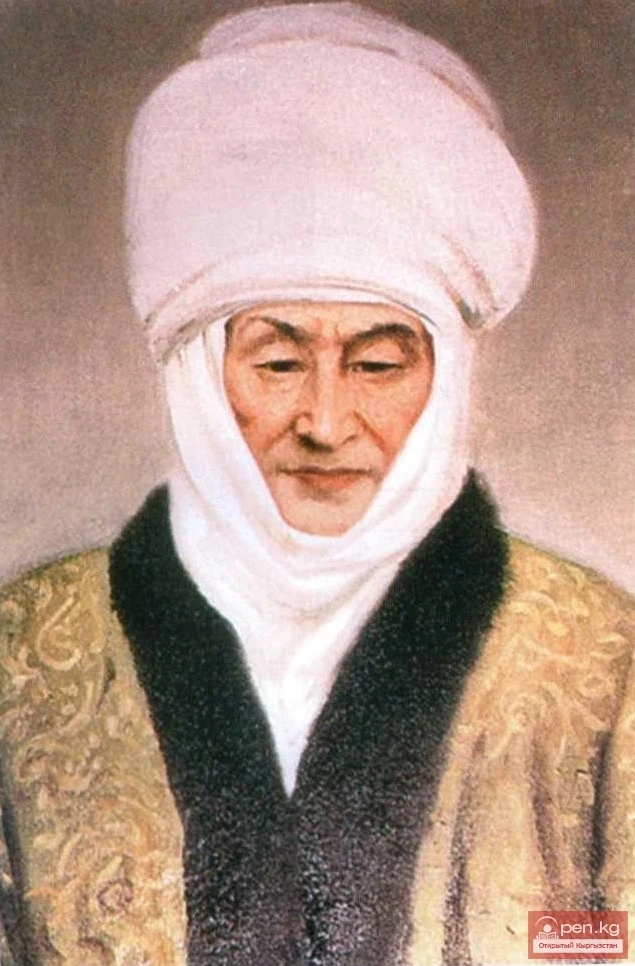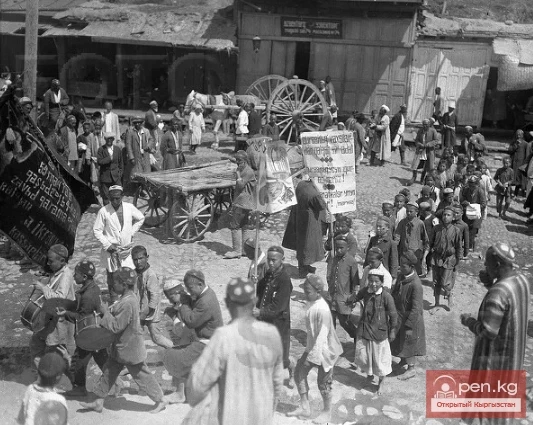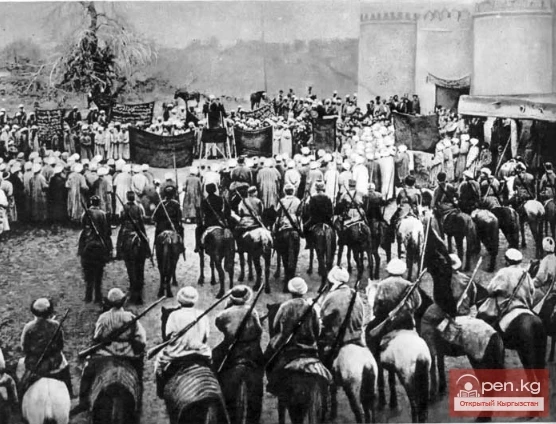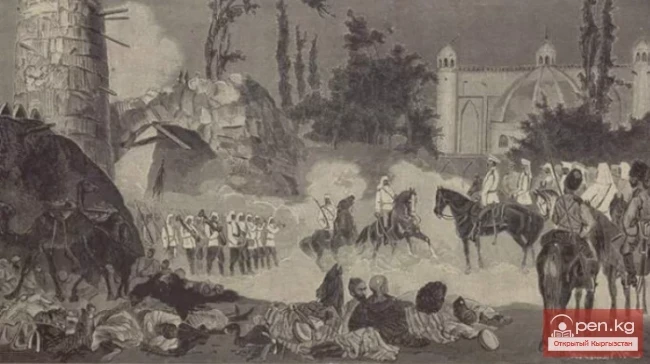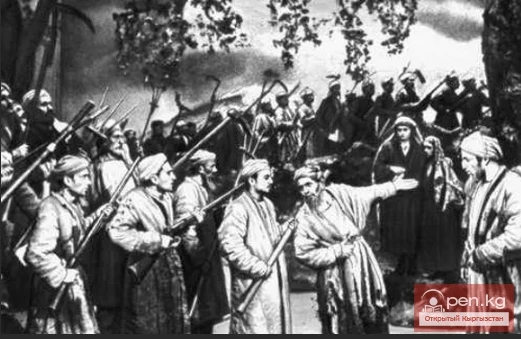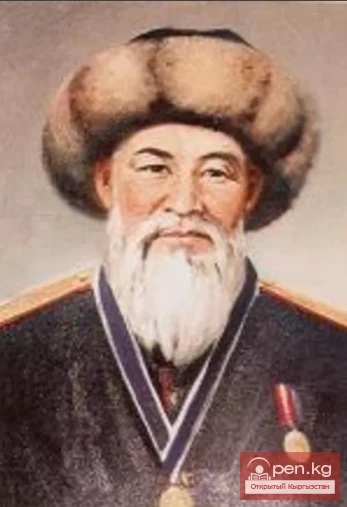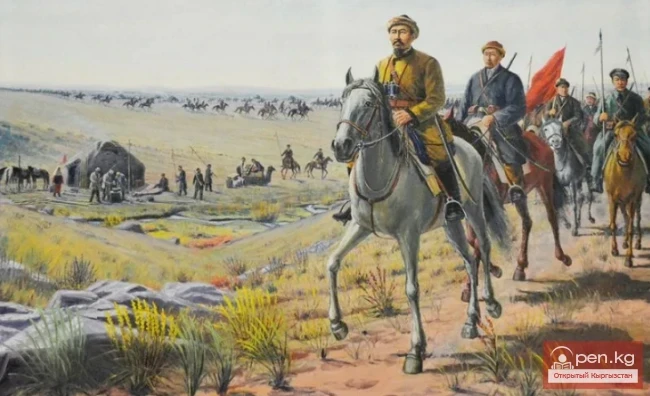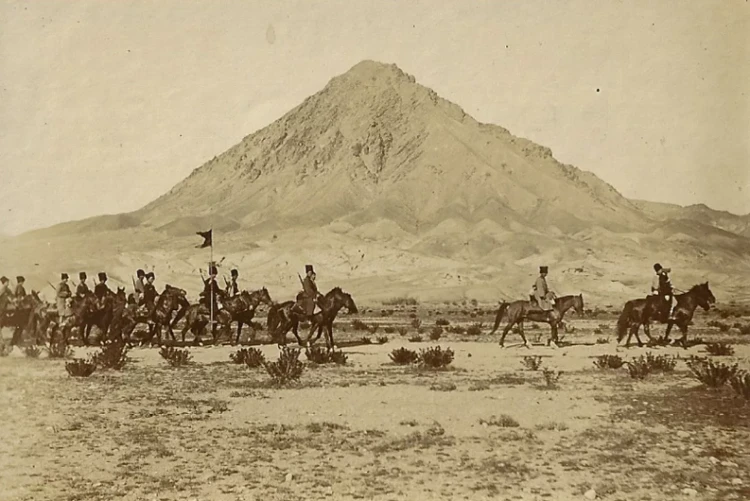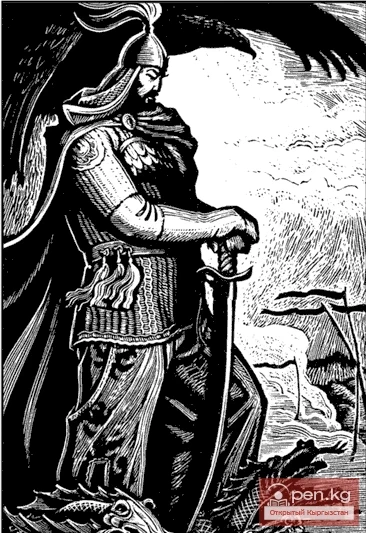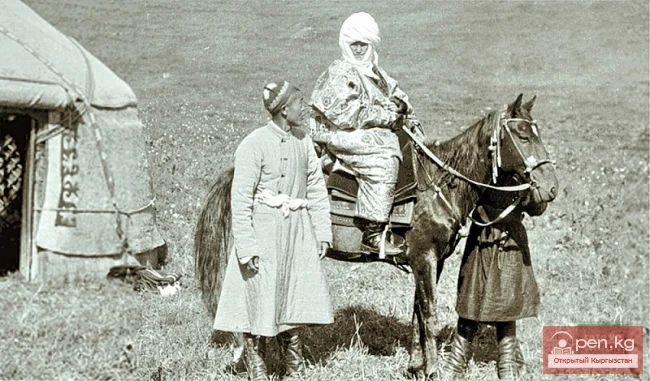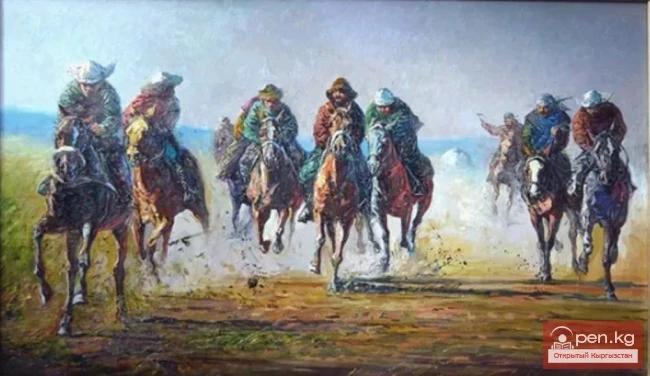OSH UPRISING OF 1845
In 1845, a major uprising of the Alai Kyrgyz broke out, soon spreading to Osh. The husband of Kurmandzhan, the Alai tribal leader Alymbek, also participated in the uprising. But he would not have lost his head if not for the wisdom of his wife. The future Alai queen, who fatefully crossed his path, became his wife - a life companion, a loyal friend, an advisor, and a support in his days of greatness and adversity.
In Alymbek's surroundings in Osh, there were many spies and secret supporters of Musulmanqul. He sent them an order: "Kill the enemy. If you cannot, make every effort to keep the Alai wolf in the city. Lull his suspicion until my merciless sword falls upon his thick neck." The second letter was addressed to Alymbek's like-minded allies, influential feudal lords among the Kyrgyz, Saidbek and Pulat: "Alymbek of Alai wants to take everything for himself. He will crush you, trample on your heads. Think and weigh it!" To Alymbek himself, the cunning opportunist wrote: "My brother! If a man is one-armed, he is no longer a jigit. You and I are like two mighty hands of the state. Without one of us, it will become a cripple."
Having thus set deadly traps for his opponent, Musulmanqul said to his associates:
- Time! Now the most precious thing is time! It gallops faster than a tulpar, but we must outpace the Alai troublemaker and destroy him before he causes us irreparable harm.
And the "great Kipchak" set out on a campaign against Osh. He was already anticipating how he would cut Alymbek into two unequal parts: one with the head, the other with everything else. Wishing to rid himself of the interference of the leaders of the Kyrgyz tribes and establish "order" in their pastures, Musulmanqul marched to the foothills of Osh in 1845. As a result of the clash, part of the Kyrgyz were defeated, and a detachment of prisoners was sent to Kokand. Musulmanqul initially remained in Osh "to finally establish order and obedience to the authorities here." Then he went to join the Kipchak army of Kur-Ogly, who continued to fight the Kyrgyz.
At that time, a conspiracy was being prepared in Kokand against both Musulmanqul and the cowardly Sheraly-khan.
The leader of the discontented, the Isfarin hakim Satybaldy datka, decided to place Murad-bek, the nephew of Alim-khan, on the throne, who at that time was in Ura-Tyube. Satybaldy datka, "having conspired and entered into an agreement with the Kyrgyz of Alai," brought Murad, one of the sons of Khaji-bi, the blood brother of Alim-khan, to the capital.
They arrived in Kokand on a Wednesday. It was a market day, and the prisoners from Osh had just been brought to the urda, gathering a large crowd in the square. Here, the heralds, who had been prepared in advance, announced the enthronement of Murad-khan. Sheraly "was forced to drink the cup of martyrdom." It is likely that both the Kyrgyz who arrived from Alai and the detachment of prisoners played a role in the coup. It can be assumed that in these events, Alymbek, the leader of the Alai Kyrgyz, made his first appearance on the large political stage.
Indirect evidence of this can be found in the account of I. Yuvachev about the Alai queen Kurmandzhan datka.
A small detachment of Kyrgyz numbering 100-200 people arrived in Kokand with Murad-bek. They were, presumably, the main support of the new khan.
Murad-bek did not remain on the throne for long. Although his main desire was to "reign for at least two days," he held the khanate for just over 11 days (according to some sources - 7 days).
Musulmanqul, quickly organizing the remaining loyal troops, proclaimed the minor Khudoyar - the son of Sheraly from the Kyrgyz wife Yarkin-ayim - as khan, after which he set out for Kokand. Supporters of Murad-khan began to flee. Only one small detachment of Kyrgyz, numbering 100-200 people, held out to the end. But as a result of the betrayal of one of the court officials - Madkerim, who opened the gates to the Kipchaks and completely had Khudoyar in their hands, part of the Kyrgyz perished, some were captured, and only a few managed to escape. Murad-khan was killed.
The Kipchaks, having triumphed over Murad-khan, also eliminated several prominent officials, including the highest clergy: Suleiman-Khodja - sheikh-ul-Islam, Damulla-khodja-kuli-Qazi-kalyan, and Mulla-Khal-Magi-Akhun-Aglam.
A minor Khudoyar-khan was placed on the throne, and all power was concentrated in the hands of the regent Musulmanqul.
The accession of Khudoyar-khan to the throne and the actual concentration of khan power in the hands of Musulmanqul did not mean the complete removal of the Kyrgyz feudal nobility. Simply one feudal grouping was defeated, another rose, some Kyrgyz feudal lords made way for others who stood with Musulmanqul for Khudoyar-khan. It is worth remembering that Khudoyar, raised in childhood in Talas among the Kyrgyz, undoubtedly had his supporters among the Kyrgyz.
In 1846, the united clans of the Kyrgyz and Kipchaks effectively seized power in the Kokand Khanate. The medieval-feudal ideology did not allow them to transition to Eastern despotic governance, and the council of tribal leaders, the biys, decided to enthrone a new khan who would meet their requirements and primarily protect their interests. On behalf of the khan, the tribal leaders intended to govern the vast state. The khan was to effectively become a puppet of the nomadic Kyrgyz-Kipchak feudal nobility, a shield behind which they could always hide.
The court officials of the slain Murad-khan were also cut down, and those who managed to escape found themselves far beyond the borders of the khanate. The arbitrariness and self-will of the ruling Kyrgyz-Kipchak elite, the freedom and impunity of the nomadic clans provoked resistance from the settled-agricultural and urban part of the Tajik-Uzbek population of the khanate, the envy of the settled feudal nobility, which always competed with the nomads for power and influence at court.
The enthroned minor Khudoyar-khan was completely in the hands of Musulmanqul. The Russian envoy in Tashkent, I.Ya. Krymov, reported that "Musulmanqul was chosen by the common desire of both the Kipchaks and the local people for his ability and talent." He had special abilities and talents - abilities in weaving internecine intrigues and machinations and talents in using the situation that arose. But he was undoubtedly a strong-willed and energetic feudal lord. Musulmanqul tied himself to the minor Khudoyar-khan by marrying his daughter to him, thus becoming the father-in-law of the khan, and in the capacity of a relative, he began to effectively manage all affairs in the khanate.
Popular uprisings involving the Kyrgyz
